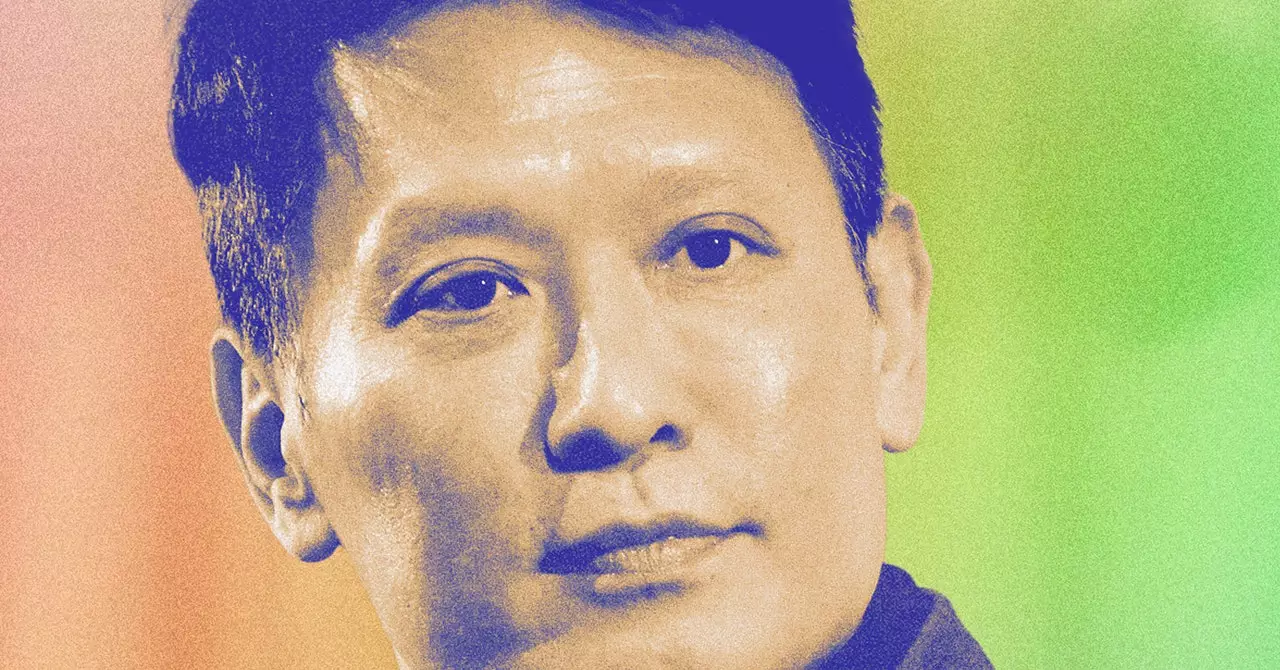The cryptocurrency industry has been characterized by rapid changes and complex challenges, particularly as regulatory scrutiny has intensified worldwide. Binance, once viewed as the unassailable leader of the crypto exchange market, faces a pivotal transition in its operational and compliance strategies with Richard Teng at the helm. Teng’s leadership marks a significant shift from the founder Changpeng Zhao’s era, as the company strives to redefine its image and enhance its regulatory practices amid heightened global scrutiny.
The Challenge of Transitioning Leadership
Leadership transitions are complex, particularly in a rapidly evolving sector like cryptocurrency. As Richard Teng assumes control of Binance, a company whose founder remains its largest shareholder, the challenge lies in distancing the brand’s future from its controversial past. Under Zhao, Binance thrived in an environment where regulations were scant, allowing for rapid growth but also creating vulnerabilities that led to legal troubles and operational missteps. Teng’s stewardship will require not only a shift in operational focus but also a cultural transformation within the company to emphasize compliance and ethical trading practices.
One of the most critical tasks ahead for Teng is the establishment of a robust compliance framework. Recognizing that the landscape has changed considerably since Binance’s inception in 2017, Teng is adamant about transitioning the brand towards a more compliant and regulated entity. “Our investments into compliance are unparalleled,” Teng asserts, highlighting that Binance now holds twenty-one different regulatory approvals. This move is not merely about ticking boxes; it’s about creating a sustainable platform that retains user trust and attracts institutional interest.
The past missteps that led to legal troubles underscore the importance of implementing comprehensive compliance mechanisms. Binance is now engaged in extensive training and collaboration with law enforcement to ensure they can leverage blockchain’s traceability to combat financial crimes effectively. This proactive approach is not just essential for regulatory alignment but also for restoring Binance’s reputation as a credible exchange.
Oversight and Accountability
In an era where regulatory compliance is paramount, oversight is crucial for ensuring accountability. As Binance navigates its settlement with the US Department of Justice, it has instituted dual layers of external monitoring. This system was established to help the company identify and rectify any compliance blind spots, reinforcing its commitment to regulatory integrity. Teng points out that these independent monitors not only provide insights but also validate the company’s internal processes.
This step can be seen as a significant evolution from the previously laissez-faire approach associated with the brand. Full cooperation with external bodies can enhance credibility and demonstrate to regulators and users alike that Binance is earnest about its compliance obligations.
As regulations evolve globally, the evolution of Binance’s structure is critical. Under Teng’s leadership, there is a clear acknowledgement of the need for a centralized operational command—the establishment of a global headquarters. This decision is complicated by the necessity to assess potential locations, talent acquisition, and regulatory frameworks unique to each jurisdiction. However, Teng’s assurance of active discussions indicates a strategic intent to align Binance further with regulatory expectations worldwide.
The direction taken for a global headquarters could significantly influence Binance’s multinational strategy, impacting its talent management, regional compliance regulations, and ability to innovate while adhering to local laws.
Richard Teng’s leadership signals a significant chapter for Binance as it confronts the compliance challenges facing the cryptocurrency industry today. With a firm commitment to reform, enhanced regulatory frameworks, and an overarching goal of fostering cooperation with law enforcement, the aim is clear: to ensure Binance not only thrives but does so responsibly.
While the shadow of past controversies lingers, there lies an opportunity for a renewed vision in which regulatory clarity, user trust, and ethical practices take center stage. Teng’s strategy to foster a best-in-class, sustainable platform could very well redefine what it means to be a global cryptocurrency exchange in a compliance-driven future. Ultimately, Binance’s evolution under Teng could serve as a blueprint for other exchanges navigating the complexities of the rapidly changing digital currency landscape.

